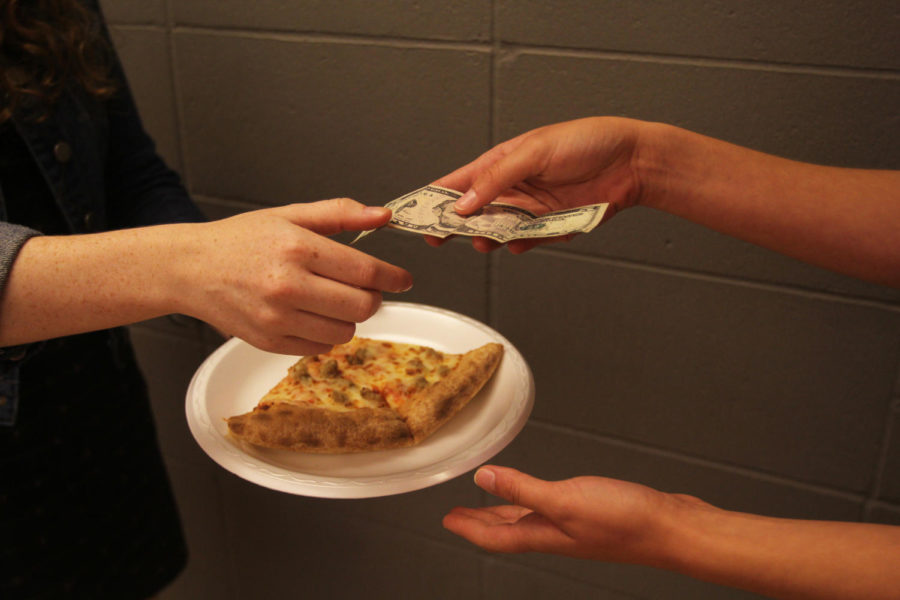Editorial: Restriction of food sales hurts student organizations
Illustration: Kelby Wingert/Iowa State Daily
It is now against the rules for organizations or students to sell ready-to-eat food on campus.
September 11, 2013
Each of the hundreds of campus organizations has regular maintenance and activity expenses. Whether it’s hiring professional dance instructors, renting out meeting space or traveling for national events, all of these organizations have goals that they want to accomplish.
And the one thing these diverse groups have in common? All these activities cost money.
The Government of the Student Body uses student fees collected each semester to fund some of these organizations’ costs. By appealing to GSB for funding, groups on campus can get their hands on the money essential for the maintenance of their organization.
However, GSB’s funds are not unlimited, and in fact, they must choose carefully whom they aid, as it’s the expenditure of student dollars. Many groups must find ways to raise money in addition to or instead of getting support from GSB.
A common club fundraiser is the sale of food, whether it’s pizza, baked goods or sub sandwiches. For example, the Society of Women Engineers is dependent upon their weekly pizza sales for money. They are not alone in this method; the sale of food is doubly effective as it both produces revenue and brings attention to the organization operating the sale.
Unfortunately, university changes in policy have made it very difficult for groups to raise funds in this manner. The Office of Risk Management has instituted several rules that complicate the process.
The first of these rules is that: “Ready-to-eat potentially hazardous foods (pizza, sandwiches, etc.) may not be purchased from a vendor and then re-sold.” In order to sell these types of food, the original vendor must oversee the sale, and then the organization that set up the event may receive “an agreed-upon commission or donation.”
The vendor, who must employ workers to operate the event and is interested primarily in revenue, will be unable or unwilling to share as much of their earnings as the organization would’ve made on its own.
Food prepared on-location must be made in a licensed kitchen and served through either ISU catering or an approved caterer. This is yet another expense that takes funds away from a group that would have volunteered time in order to get the most revenue.
Though the intent of these rules is unarguably to reduce risk of contamination or food poisoning, they make it nearly impossible for student groups to be self-sufficient.
By removing a common method of fundraising, the university has made all student organizations more reliant upon GSB’s help. The Society of Women Engineers, among others, will have to find other ways to sustain itself until the policies are reconsidered.
The less capable groups are of producing their own funding, the more they will ask of GSB. And although GSB has the right to decide which groups they will support financially, it will be obligated to provide more aid with the recognition the groups no longer can sell easily food on campus.
This means there will be even more student dollars being spent on the hundreds of organizations on campus.
The university needs to repeal and re-examine the policies it has enacted on student food sales. As an institution dedicated to the student experience, Iowa State’s policy makers need to understand that food sales are a necessary part of maintaining and funding the clubs and organizations that we students so value.







